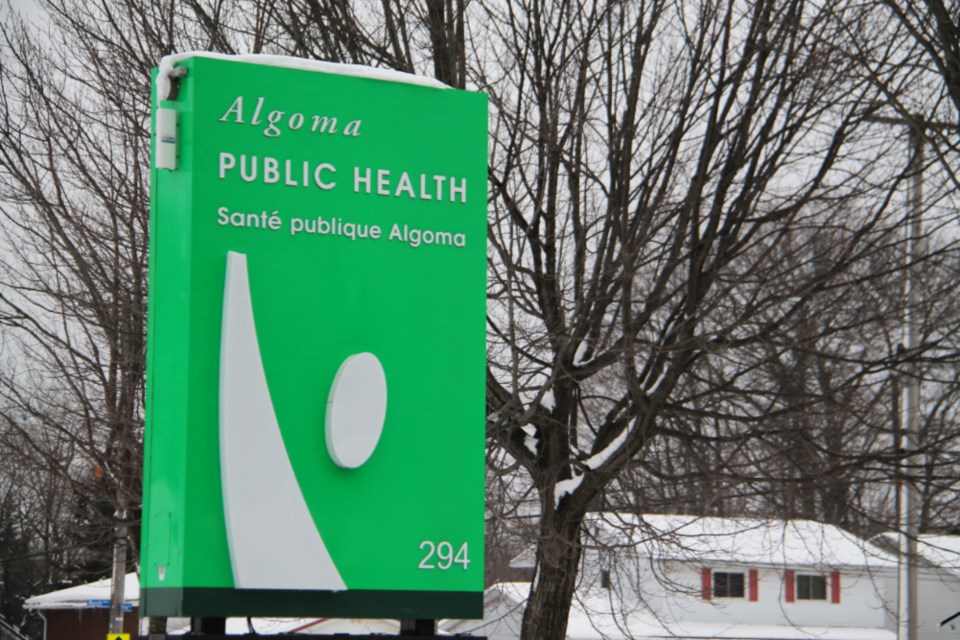“For most individuals, especially people who don't have many medical conditions and have protection from at least two, if not three doses of COVID-19 vaccine, the risk of getting very sick from COVID-19 is low,” said Dr. Jennifer Loo.
The Algoma Public Health (APH) medical officer of health made the comment after Chief Medical Officer of Health of Ontario, Dr. Kieran Moore, said members of the general public with mild symptoms should not seek (COVID-19 PCR) testing.
That move comes as Ontario’s testing capacity has been stretched to the limit and only people who live, work or volunteer in the highest risk settings (such as hospitals, long term care and retirement homes and other congregate living settings) are eligible for PCR testing at this time.
The change in policy from the province and handed down to public health units such as APH has some Ontarians asking if that approach is safe, given the rapid spread of the Omicron variant.
“The number of confirmed cases reported (daily, by APH) will be an underestimate of the number of cases in the community,” Loo said in an email Tuesday.
“With regards to the Omicron strain, the latest evidence shows that it spreads much faster than Delta; across the province, we have seen the number of cases double about every three days.”
However, Loo added “Ontario data shows that, after accounting for immunization, there is a 54 per cent lower risk of hospitalization and death with the Omicron strain, as compared with Delta.”
“This prioritization (in COVID testing) is to make sure that people who are most vulnerable and at highest risk of severe disease are the ones who are provided with prompt testing, and therefore the appropriate diagnosis and medical treatment they need.”
Though the Omicron variant is showing itself to be more easily spread but not as serious as the Delta variant, people should still take the necessary COVID precautions, Loo said.
“A minority of individuals may still get very sick from COVID-19, especially if they have not yet received at least two doses of vaccine or are vulnerable because they are elderly or have other medical conditions.”
“People who are well-protected from vaccination, and at lower risk, should still isolate themselves if they get sick, so that they do not spread the infection to someone who might be more vulnerable. People who are at higher risk should get immunized as soon as possible, and be extra careful to take preventive actions, like masking, distancing, and limiting close contact with people they do not live with,” Loo said.
“For the community, even though Omicron may cause less severe disease in most people, it still can cause severe disease in some people. Because it spreads so quickly, there is still a risk of local hospitals becoming overwhelmed if a large number of vulnerable people get sick and need hospital care all at once.”
The province announced restrictions Monday to curb transmission and protect the Ontario healthcare system’s capacity so that healthcare resources and frontline healthcare workers can provide care for everyone who might need it.
Those restrictions, that go into effect 12:01 a.m. Wednesday and last until Jan. 26 at least, include:
- Closing indoor dining at restaurants and bars. Outdoor dining is allowed with restrictions, as well as takeout, drive-through and delivery.
- Social gatherings limited to five people indoors and 10 people outdoors.
- Organized public events limited to five people indoors.
- People having to work remotely unless their work requires them to be on-site.
- Limiting capacity at indoor weddings, funerals, and religious services, rites and ceremonies to 50 per cent capacity of the particular room. Outdoor services are limited to the number of people that can maintain physical distancing. Social gatherings associated with these services must adhere to the social gathering limits.
- Retail settings, including shopping malls, opening at 50 per cent capacity (physical distancing required in line-ups, food courts closed).
- Indoor meeting and event spaces closed, with limited exceptions. Outdoor spaces can open with restrictions.
- Public libraries limited to 50 per cent capacity.
A longer list of restrictions can be found here.
Schools will not return to in-person learning on Wednesday, Jan. 5 as originally planned. There will be virtual learning until at least Jan. 17.
The rollout of rapid antigen testing (RAT) in schools was implemented before the Christmas holidays.
APH, Loo said, will continue to work with local school boards and schools to support the use of rapid tests in the school setting, in accordance with existing and any new school testing policies from the provincial government.
A person with COVID-19 symptoms who is not tested must isolate at home for five days and household members who live with them must also stay home during that time (isolation is 10 days for anyone who is immune compromised or who is 12 and older and has not had at least two doses of COVID-19 vaccine).
“This is similar to what people should do when they are sick with any cold or flu symptoms, even before the pandemic - they should stay home,” Loo said.
